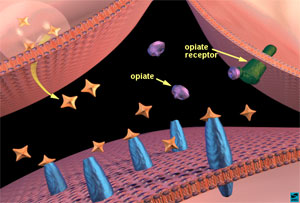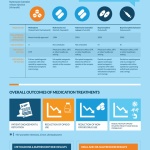Opiates, which include illegal drugs such as heroin as well as prescription painkillers like OxyContin, are very addictive and can lead to opiate addiction. As a result, many people abuse opiates and they often succumb to opiate addiction, even though they are aware that the drugs could affect their lives in a negative way.

Someone has an opiate addiction when ever they are physically and/or psychologically dependent on the drug. They will continue to take the drug in order to avoid dealing with opiate withdrawal symptoms or even simply because they desire to feel the euphoric effects of the drug. People that succumb to opiate addiction experience strong cravings that get the best of their ability to quit using opiates, even when faced with destructive outcomes.
A number of the most crucial breakthroughs in the area of opiate addiction research gained momentum during the 1970s. In one study, scientists established that opiates produce their appealing effects by hooking onto certain areas of brain cells called opiate receptors. In anybody who takes opiates on a regular basis for an extended time, nerve receptors will probably adapt and start to resist the drug, resulting in the necessity for increased doses. There is also a physical tolerance withdrawal effect that happens when the drug is gone from the body and the receptors need to re-adapt to its absence.
Opiate drugs such as heroin or prescribed medications such as Vicodin and OxyContin control pain, decrease anxiety, and at sufficiently higher dosages result in euphoria. But over time, whenever abused or even used when they are not medically appropriate, opiates can impact the brain and body in a negative way, resulting in a severe opiate addiction, and lead to destruction to a person’s life.
According to reports, about 750,000 to 1 million people in America are heroin addicts. Also, a recent review reports that 30 million individuals have taken prescribed pain relievers such as Vicodin and OxyContin for non-medical purposes.



